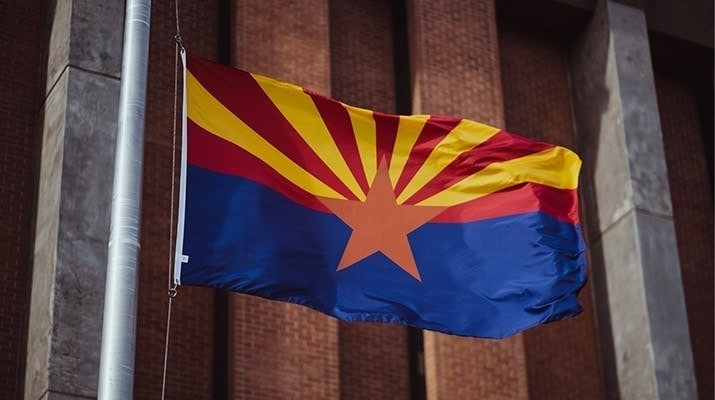
Arizona Attorney General Kris Mayes has joined 30+ attorneys general in calling on Congress to pass the SAFER Banking Act of 2025. The coalition submitted a letter to congressional leaders urging passage of legislation that would provide legal clarity for banks and financial institutions to serve state-regulated cannabis businesses, addressing critical public safety concerns while improving states’ ability to collect taxes and conduct regulatory oversight.
“When legal cannabis businesses are forced to operate in cash, it’s not just inefficient – it’s dangerous,” said Attorney General Mayes. “The SAFER Banking Act is a practical solution that will protect workers and communities while ensuring Arizona can effectively collect taxes and oversee this growing industry.”
The letter emphasizes that current federal banking restrictions create unnecessary public safety risks by forcing legitimate cannabis businesses to operate primarily in cash. This cash-intensive environment makes employees and customers targets for violent crime while undermining states’ ability to effectively regulate and tax these industries.
Currently, 39 states, three territories, and the District of Columbia permit medical cannabis use, while 24 states, two territories, and the District of Columbia have legalized adult-use cannabis. Nearly 75% of Americans now live in jurisdictions where cannabis has been legalized in some form.
The attorneys general note that 21 states currently collect cannabis tax revenues, but many state agencies have been turned away by financial institutions when attempting to deposit cannabis-related payments.
“For over 12 years, Arizona’s legal, regulated marijuana program has prioritized safety for patients, consumers, and the public,” said Ann Torrez, Executive Director of Arizona Dispensaries Association. “We are grateful to Attorney General Mayes for the continued support in upholding the voter-approved marijuana program in Arizona, and for joining a bipartisan coalition urging Congress to act on S.A.F.E.R (Secure and Fair Enforcement Regulation Banking Act). Access to traditional financial services is essential for improving transparency, reducing public safety risks, and ensuring the continued success of our industry. This is a critical federal issue, and we appreciate leaders on both sides of the aisle working together to address it.”
The coalition emphasizes that the SAFER Banking Act would not encourage cannabis legalization in states that have chosen not to permit it, nor would it change cannabis’s federal legal status. Instead, the legislation creates a targeted safe harbor allowing depository institutions to provide financial services to covered businesses in states that have implemented laws and regulations ensuring accountability in the cannabis industry.
The letter argues that bringing cannabis commerce into the regulated banking system would enable law enforcement; federal, state, and local tax agencies; and cannabis regulators to more effectively monitor cannabis businesses and their transactions. Compliance with tax laws would be simpler and easier to enforce with regulated tracking of funds in the banking system, resulting in higher tax revenues.
The coalition stresses that the legislation is common-sense, bipartisan, and respects both state sovereignty and the current federal status of cannabis. The SAFER Banking Act addresses specific public policy challenges facing states due to federal prohibition on banking cannabis-related funds while moving cash from legal cannabis businesses into the highly regulated banking system, where it will be more transparent to state regulators and law enforcement.
The attorneys general conclude that the legislation will beneficially impact the safety of Americans who live in states where cannabis has been legalized, while enabling economic growth and stability in their respective jurisdictions.
Joining Attorney General Mayes in filing the letter are the attorneys general of Maryland, Ohio, Georgia, the District of Columbia, Alaska, American Samoa, California, Colorado, Connecticut, Delaware, Hawaii, Illinois, Maine, Massachusetts, Michigan, Minnesota, Nevada, New Jersey, New Mexico, New York, Northern Mariana Islands, Oklahoma, Oregon, Pennsylvania, Rhode Island, South Dakota, U.S. Virgin Islands, Utah, Vermont, Washington, and West Virginia.
 AZ Marijuana Arizona Marijuana Info
AZ Marijuana Arizona Marijuana Info






